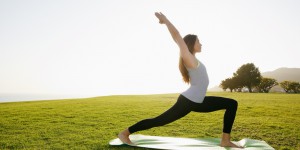By Ryan Brooks
We all know your work schedule can get pretty hectic sometimes. Some days everything goes as planned and you leave work on time. Other days however, things don’t go as planned and you end up staying late. When it is on a day you plan to workout, this can be a problem. Below is a list of exercises you can do during the day to make sure you still get a workout in, even if you are stuck at the office all day.
- Push-Ups

- Back Extension
- Lateral Arm Raises
- Bicep Curls
- Chair Dips
- Air Squats
- Frontward Lunges
- Calf Raises
- Crunches
Most of the exercises above can be done with no weights at all. Depending on the person, you may need to have added weight. For the added weight, any office supplies will work. Books, staplers, et cetera are good go-to’s. The number of sets and repetitions is dependent on the person also. Specialize these numbers to fit you personally. Most importantly, remember to be safe!


